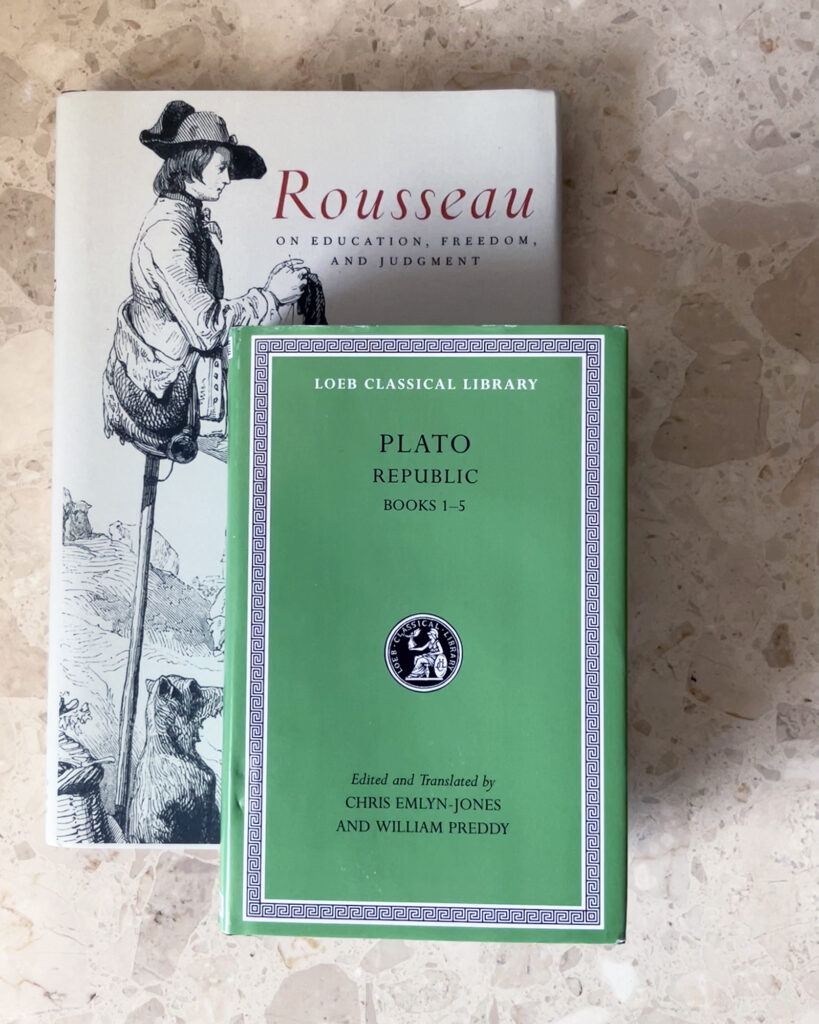CMP Review 2023-06-06
June 6, 2023

A famous British educationist noted that two creative thinkers in the educational tradition of the West have been particularly prominent: Plato and Rousseau. And he noted that these two are typically set in strong opposition. This fact can lead readers of Charlotte Mason to be perplexed when she cites both thinkers in her volumes and papers. How can she draw from two contradictory traditions?
Well, this same British educationist also insisted that “neither Plato nor Rousseau is as one-sided as so sharp an antithesis would suggest,” and “if we take the thought of each as a whole and extract as well as we can the central meaning, it is the identities rather than the differences which strike us.” Perhaps these “identities” explain how Mason can draw from two otherwise opposing traditions.
The educationist was named Sir Fred Clarke, and his work caught the eye of Elsie Kitching, editor of The Parents’ Review for 27 years after Mason’s death. But even Clarke acknowledged that “in the last resort there is a fundamental difference between Plato and Rousseau.” And he solemnly explained that where “Plato and Rousseau part company,” we must choose one to follow.
Which one did Clarke choose? Find out in this classic article hand-picked by Elsie Kitching in 1936 and published in The Parents’ Review. Read at your leisure, or hear the recording made by candlelight here.
@artmiddlekauff